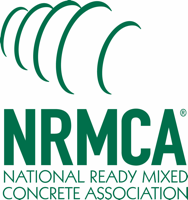NRMCA Research Lab Brochure | Laboratory Testing
Laboratory Goals
- Conduct applied research for the benefit of the concrete industry
- Conduct contract testing, and provide consultative assistance to the concrete industry
Laboratory Credentials
- Inspected by Cement and Concrete Reference Laboratory (CCRL)
- Accredited by the AASHTO Accreditation Program (AAP)
Laboratory Facility
- 5000 square foot all tilt-up concrete building with extensive outdoor test area
- Moist room, 100°F, 140°F controlled rooms, 70°F/50% Relative Humidity room
- Classroom area, concrete mixing area, aggregate processing area, ovens
Laboratory Address
5600 Branchville Road, College Park, MD 20740
Email: Lab Manager Stuart Sherman, (703) 706-4873
Phone: (301) 728-5455
Here are some of the problems we can help you solve
- Interpreting Concrete Specifications
- Optimizing Concrete Mixtures for Durability, Sustainability and other Requirements
- Material/Product Evaluation
- Improving Concrete Quality including Testing Quality
- Complying with codes and standards influencing ready mixed concrete
- Performance based Specifications
- Developing a quality plan for producing ready mixed concrete
Members receive a 40% discount, lending significant savings.
For more information or quotes please contact Stuart Sherman, 703-706-4873
Selected Past Research Projects
- Tests on concrete admixtures (1945-1959)
- Fly ash in concrete (1954)
- Portland blast furnace slag cement in concrete (1959)
- Core tests of in-place concrete (1960)
- Effect of sand particle shape on concrete properties (1961-1970)
- Drying shrinkage of concrete (1962)
- Effect of curing on compressive strength of concrete (1969)
- Truck mixer studies for batching sequence and mixing variations (1970-75)
- Uniformity of fly ash from a single source (1988)
- Testing of more than 150 aggregate sources nationwide for alkali aggregate reactions (1994, 1998)
- Use of plastic returned concrete in ready mixed concrete (1995)
- Use of wash water in ready mixed concrete (1997)
Selected Past Achievements in Standards Development
- ASTM C94 criteria on the reuse of mixer wash water
- Use of 4×8 in. cylinders for strength testing (ASTM C39)
- Precision statement for the AASHTO microwave oven test
- Tolerance requirements for high strength concrete testing (ASTM C39)
- Proper use of pad caps for compressive strength (ASTM C1231)
- Modified moisture conditioning of cores (ASTM C42)
“Recipient of 1998 Arthur R. Anderson Award, American Concrete Institute”
Selected Recent Research Projects
- Crushed returned concrete as aggregate
- Optimizing cementitious content in concrete mixtures
- Higher fly ash concrete with acceptable performance
- New permeability tests and performance criteria
- Pervious concrete mixture proportioning
- Effect of continuous (well-graded) aggregate grading
Research Reports
- A Limited Performance Evaluation of Natural Pozzolans Using the Bulk Resistivity Test (PDF)
. - Improving the Reliability of Resistivity Tests of Concrete (PDF)
. - Evaluation of ASTM Standard Practice on Measuring the Electrical Resistance of Fresh Concrete (PDF) September 2017
. - Evaluation of Chloride Limits for Reinforced Concrete Phase A. (PDF) July 2017
. - Optimizing Concrete Mixtures for Performance and Sustainability (PDF) September 2015
. - An Evaluation of Performance-Based Alternatives to the Durability Provisions of the ACI 318 Building Code (PDF) January 2015
. - Greatly Increased Use of Fly Ash in Hydraulic Cement Concrete (HCC) for Pavement Layers and Transportation Structures (PDF) March 2012
. - New Technology-Based Approach to Advance Higher Volume Fly Ash Concrete with Acceptable Performance:Guide for the Construction Team (PDF) October 2008 (Guide Issue Date)
. - New Technology-Based Approach to Advance Higher Volume Fly Ash Concrete with Acceptable Performance (PDF) August 2008 (Final Report)
. - Crushed Returned Concrete as Aggregates for New Concrete (PDF)
Report to the RMC Research & Education Foundation, September 2007
. - Effect of Continuous (Well-Graded) Combined Aggregate Grading on Concrete Performance, Phase A: Aggregate Voids Content (Packing Density) (PDF) May 2007
. - Effect of Continuous (Well-Graded) Combined Aggregate Grading on Concrete Performance, Phase B: Concrete Performance (PDF) May 2007
. - Experimental Case Study Demonstrating the Advantages of Performance Specifications (PDF) Report to the RMC Research & Education Foundation, January 2006
. - Establishing a Center for Concrete Research (PDF)
Concrete InFocus
